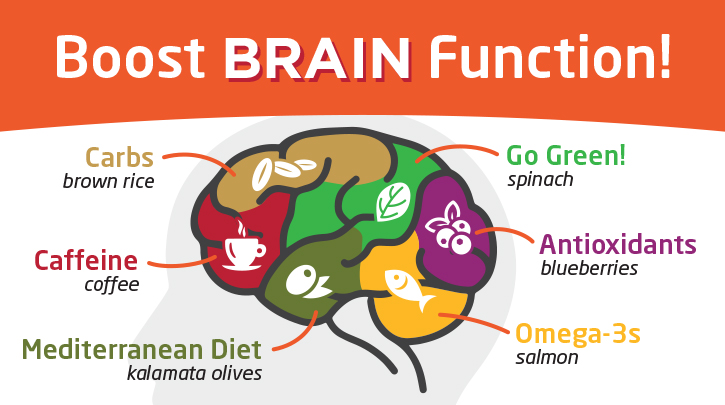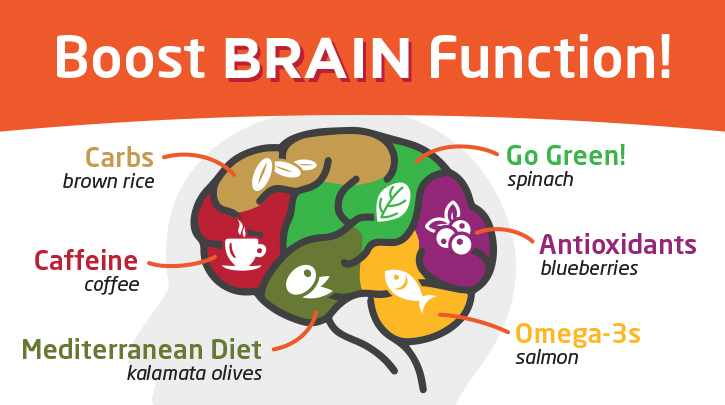
The human brain, a complex and intricate organ, holds the power of cognitive function, emotional regulation, and intricate neural processes. As the control center of the body, it’s imperative to maintain and enhance its function to ensure a sharp mind and a healthy life. In today’s fast-paced world, optimizing brain function is not just a goal for the elderly aiming to prevent cognitive decline but also for individuals across all age groups striving for mental excellence and improved productivity.
One of the foundational pillars of enhanced brain function is proper nutrition. The brain consumes about 20% of the body’s total energy, and thus, it is crucial to fuel it with the right nutrients. Foods rich in antioxidants, good fats, vitamins, and minerals provide energy and aid in protecting against brain diseases. Consuming nutrient-rich foods like fish, fruits, vegetables, nuts, and seeds helps in boosting memory and cognitive function. Omega-3 fatty acids found in fish are essential for brain health as they aid in building brain cells, enhancing cognition and memory. Antioxidants in fruits and vegetables work to combat oxidative stress and inflammation, conditions that can contribute to brain aging and neurodegenerative diseases.
Staying hydrated is another crucial aspect of maintaining optimal brain function. The brain is about 75% water and dehydration can have a negative effect on your attention and long-term memory. Drinking enough water has numerous benefits for the brain, including improved concentration and cognition, help in balancing mood and emotions, maintaining memory function, and increasing blood flow and oxygen to the brain. Ensuring adequate water intake is a simple yet effective way to enhance brain function.
Regular physical activity is also paramount when it comes to boosting brain health. Exercise improves blood flow to the entire body, including the brain, and it aids in the production of neurotrophins, leading to enhanced cognitive function, memory, and learning. Engaging in aerobic exercise has been shown to increase the size of the hippocampus, the part of the brain vital for memory and learning. Activities like yoga and meditation have also proven beneficial for cognitive function as they promote relaxation and stress reduction.
Sleep plays a critical role in brain health. A good night’s sleep aids in the formation of new memories, and it helps the brain to reset and recover. Sleep deprivation, on the other hand, can lead to impaired cognitive function, memory, and mood. Establishing a regular sleep pattern and ensuring you get enough quality sleep each night is crucial for optimal brain function.
Stress management is an often-overlooked factor in brain health. Chronic stress has been shown to damage the brain in the long run and can lead to memory loss, cognitive decline, and various mental health conditions. Implementing stress-reducing practices such as mindfulness, deep breathing exercises, and engaging in hobbies can significantly improve brain function and enhance mental clarity.
Mental stimulation is just as vital for the brain as physical exercise. Engaging in cognitively stimulating activities, such as puzzles, games, reading, and learning new skills, enhances brain function and prevents cognitive decline. Continuous learning helps in maintaining and building cognitive skills and memory.
Social connections and relationships contribute to our emotional well-being and brain health. Positive interactions with family and friends stimulate brain regions involved in emotional regulation and cognitive processing. Maintaining a vibrant social life can protect against memory loss, boost your mood, and enhance your cognitive function.
Mindfulness and meditation are powerful tools for enhancing brain function. These practices not only reduce stress but also increase the grey matter in the brain, which is involved in executive functioning, memory, and emotional regulation. Incorporating mindfulness and meditation into your daily routine can result in improved attention, clarity of thought, and cognitive function.
Finally, establishing a brain-healthy lifestyle involves taking a holistic approach. It is about incorporating positive habits into your daily life that benefit your physical health, emotional well-being, and cognitive function. This includes maintaining a balanced diet, staying physically active, getting enough sleep, managing stress, engaging in continuous learning, maintaining social connections, and practicing mindfulness.
By taking active steps towards a brain-healthy lifestyle, you pave the way for enhanced cognitive function, better memory, and a sharper mind. Investing in your brain health is investing in your overall well-being and quality of life. So, embrace these practices, make them a part of your daily routine, and experience the profound benefits they bring to your brain function and life as a whole.
With commitment and consistency, these practices can transform your cognitive abilities, boost your brain health, and enhance your mental clarity, paving the way for a life of mental excellence and well-being. Prioritizing your brain health is a journey worth taking, as it not only enhances your cognitive abilities but also contributes significantly to your overall quality of life. So, embark on this journey to better brain health today, and unlock the full potential of your cognitive abilities for a sharper, more vibrant mind.
Understanding the intricate relationship between lifestyle choices and brain health is the first step in fostering a conducive environment for optimal cognitive functioning. In addition to the aforementioned practices, it is crucial to be mindful of other lifestyle factors that could potentially impact your brain health.
Incorporating Antioxidants in Your Diet: Antioxidants play a significant role in combating oxidative stress and inflammation, which are known contributors to cognitive decline and neurodegenerative diseases. Foods rich in antioxidants, such as berries, dark chocolate, nuts, and spinach, can act as a protective shield for your brain. By incorporating these foods into your diet, you are not only nourishing your body but also supporting your brain’s health and function.
Prioritizing Mental Health: Your mental health is intricately linked to your cognitive function. Conditions such as depression, anxiety, and stress can take a toll on your brain, leading to issues with memory, focus, and overall cognitive performance. Prioritizing your mental health through practices like counseling, mindfulness, and stress management can play a pivotal role in maintaining a healthy brain.

Embracing a Brain-Boosting Lifestyle: A holistic approach to brain health encompasses a variety of lifestyle choices that contribute to optimal cognitive function. This includes regular physical activity, a balanced and nutritious diet, adequate sleep, mental stimulation, and strong social connections. By embracing a lifestyle that supports brain health, you are laying the groundwork for a sharp, focused, and resilient mind.
Continuous Learning and Cognitive Engagement: The brain thrives on challenge and engagement. Activities that stimulate your mind, such as learning a new language, picking up a musical instrument, or engaging in puzzles and games, can enhance neuroplasticity – the brain’s ability to form new neural connections. This not only boosts your cognitive abilities but also provides a sense of achievement and satisfaction.
The Power of Positive Thinking: Cultivating a positive mindset can have a profound impact on your brain function. Positive thinking contributes to a lower risk of cognitive decline and promotes a healthier, more resilient brain. Practices such as gratitude journaling, positive affirmations, and focusing on the positive aspects of life can foster a positive mental state and enhance your cognitive function.
Avoiding Harmful Habits: Certain habits such as smoking, excessive alcohol consumption, and drug abuse can have detrimental effects on your brain health. Avoiding these harmful habits is crucial in maintaining a healthy brain and preventing cognitive decline.
Routine Medical Check-ups: Regular medical check-ups play a crucial role in monitoring your overall health and identifying potential issues before they become severe. Conditions such as hypertension, diabetes, and high cholesterol can impact your brain health if left unmanaged. By staying on top of your health through regular check-ups, you are taking a proactive step towards protecting your brain.
Embracing the Journey: Improving brain function is not a one-time task but a lifelong journey. It requires consistency, commitment, and a willingness to embrace positive lifestyle changes. By taking proactive steps towards enhancing your brain health, you are investing in a future of mental clarity, improved memory, and optimal cognitive function.
In conclusion, enhancing your brain function is a holistic endeavor that requires a combination of healthy lifestyle choices, mental stimulation, and a positive mindset. By incorporating these practices into your daily life, you are setting the stage for improved cognitive function, a sharper mind, and a healthier, happier life. Remember, your brain is capable of incredible things, and with the right care and attention, you can unlock its full potential and experience the numerous benefits of a vibrant, healthy brain. So, take the steps today to nurture your brain, and reap the rewards of improved brain function for years to come.




